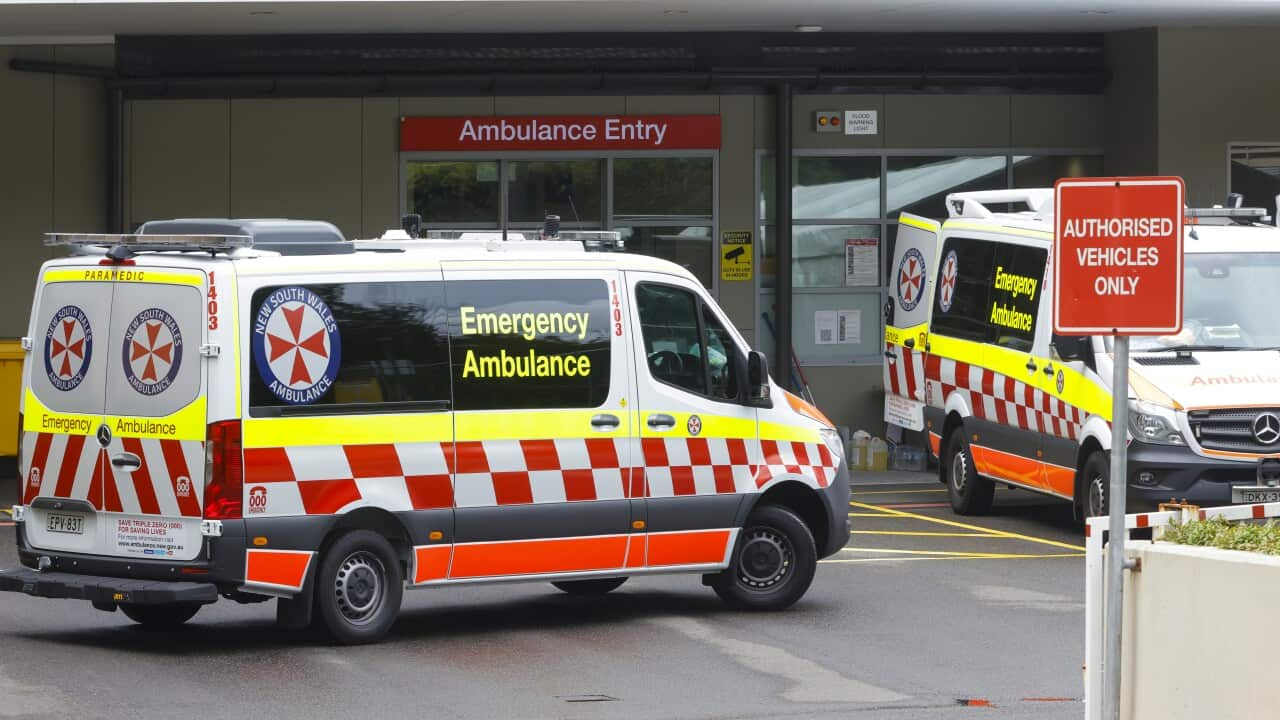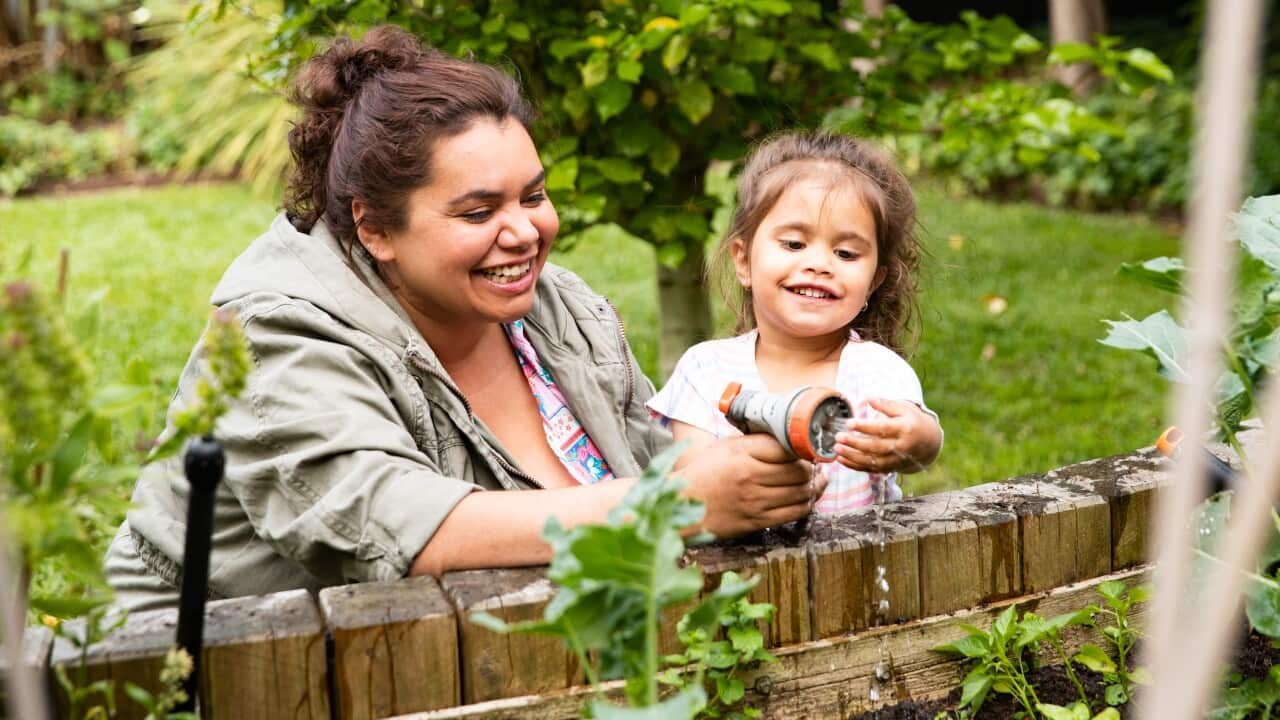Key Points
- Always dail Triple Zero (000) in a medical emergency
- Anyone can call an ambulance from anywhere in Australia
- Provide detailed and specific information when calling for an ambulance
- Ambulance services are not free in all states and territories.
Ambulances are vehicles equipped to provide emergency care to sick or injured people, and to get them to a hospital if needed.
Dr Simon Sawyer is a Registered Paramedic, and the Director of Education at the Australian Paramedical College.
When to call an ambulance
Dr Sawyer says there can be a wide range of circumstances when someone should call triple zero (000) and ask for an ambulance, including when someone:
- is having a heart-attack or you think they're having a heart-attack
- has unexplained chest pain or chest tightness,
- has suddenly lost consciousness or was suddenly weak or numb or paralysed,
- has been a victim of violence like being stabbed or shot,
- has been burnt, and it's particularly important to call the ambulance for children.
- In case of seizures; traumatic injuries, falls from large heights where you've injured yourself.

You should call triple zero (000) if someone is seriously injured or needs urgent medical help. Credit: PixelsEffect/Getty Images
If you are somewhere that it's difficult to locate, unless you tell us exactly where you are, we don't know where you are.Dr Simon Sawyer, Registered Paramedic, and Director of Education at the Australian Paramedical College.
Therefore, it’s important to provide as much clear information as possible when you call triple zero, explains Dr Sawyer.
"So if you are in the middle of a music festival, if you're in the middle of a supermarket, if you're on a farm and you don't have proper street signs and maybe you don't have a letterbox with your number up, we have no way of knowing where you are".
Anyone can call Triple Zero (000)
Calls to Triple Zero are free and can be made 24 hours a day, seven days a week from any landline, pay phone or mobile phone.
It’s not necessary to have phone credit to call 000, explains Dr Simon Sawyer.
Anyone can use the Triple Zero (000) service. You don't need to be a subscriber, you don't need to be a citizen. Children can call, adults can call. You can be on holidays, anywhere in Australia.Dr Simon Sawyer.
If someone has speech or hearing impairments, they can text 106, which is a text based service.

"You can be in a state you're not normally living in. You don't even need to be at home," says Dr Sawyer. Source: Moment RF / skaman306/Getty Images
What happens when you call Triple Zero (000)
The person who answers your triple zero call will ask questions to decide if your situation qualifies as an emergency.
Dr Sawyer says how you answer those questions is crucial.
"So be as specific as possible. Speaking as a paramedic, it's important for me to know exactly what I'm going to for a number of reasons. So you might say, for example, I've had a car accident. My partner isn't breathing, my partner's got chest pain..."
The call-taker will also ask how many people are sick or injured.
"That's important because if it's just one [person], maybe just one ambulance will be enough, but if there are three people injured, one ambulance won't be enough and we might just need to send more," Dr Sawyer adds.
Information on the age and sex of the patients is also important, as it helps paramedics prepare the right medication and instrument sizes required. That includes knowing if patients identify as trans or non-binary.
Dr Sawyer says knowing the age of the person is particularly important. For example, "if you're a very young child or very elderly person, or in between, I might need to start considering what medications I'm gonna give and what doses. I need to prepare things," he explains.

Ms Mackay says not all calls to triple zero result in an ambulance being dispatched. Source: AAP / RICHARD WAINWRIGHT/AAPIMAGE
Ambulances are not dispatched for every call
Lindsay Mackay is the Ambulance Victoria Acting Executive Director Operational Communications.
She says not all calls to triple zero result in an ambulance being dispatched.
One in five calls in Australia don't require an emergency ambulance.Lindsay Mackay, Acting Executive Director Operational Communications, Ambulance Victoria.
"Once you've provided all your information to the call-taker, they'll then make a decision through the system..." Ms Mackay explains.
She says, if they do not consider it an emergency they may try and connect you with a doctor, a pharmacy, they may send a doctor out to you or a nurse if you've got an injury.
Types of vehicles used
There are several types of ambulance vehicles, and all are specially equipped, including:
- vans (the most common type of ambulance)
- four-wheel drives
- motorbikes
- buses
- airplanes
- helicopters

An ambulance helicopter lands at the Alfred Hospital in Melbourne, Thursday, June 9, 2022. Source: AAP / DIEGO FEDELE/AAPIMAGE
Provisional diagnosis
Once they are on the scene, the paramedics will come up with a provisional diagnosis, says Dr Sawyer.
“We're experts in out of hospital emergency health. We'll ask a lot of questions about your past medical history as well, and if you have allergies and if you're on medications. All that information we use to try and form a, we call it a provisional diagnosis — what we think is wrong with you."
Usually, an ambulance will take you to the nearest hospital, but not always, as Dr Sawyer explains.

If you live in Tasmania, the state government waives the ambulance costs in most cases. Source: AAP / ROB BLAKERS/AAPIMAGE
Who pays for an ambulance call?
Medicare does not cover the cost of ambulance services.
Charges for calling an ambulance vary depending on jurisdiction and the patient's personal circumstances.
State ambulance services may charge a call-out fee or a per kilometre fee, or both.
States like Queensland and Tasmania have free ambulance cover for all residents. In others, you have to pay for a membership. It's important to note, you can still use the ambulance service if you don't have a membership, but you might have to pay.Dr Simon Sawyer, Registered Paramedic, and Director of Education at the Australian Paramedical College.
Dr Sawyer recommends to contact your state ambulance service.
"You can go through their website or you can call them. You don't call triple zero. You would call the ambulance service and ask whether you fall into the category of needing a membership or not. And they will be able to advise you," he says.
"If you do need a membership, they're cheap. They're usually around $50 a year for a single person or around $100 dollars for a family".
"If you've got private health insurance, sometimes the ambulance cover is included in that," Dr Sawyer adds.
To find out more about the fees in your state, visit:
Ambulance costs may be reduced or removed for aged pensioner concession holders, health care concession card holders and Department of Veterans Affairs Gold Card holders in some states.
Interpreters are available
Ms Mackay says, if you don't speak English well, you can use an accredited bilingual interpreter, at any stage of the process.
“We have access to the full national linguistic line. So, when they dial triple zero, they could say to them, if they don't know lots of English, at least if they know to say 'I speak…' and then tell them what language they speak. They'll connect them through to the interpreter service," she explains.







